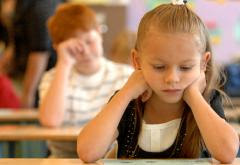The Danger of "Public" Education
The key issue in the entire discussion is simply this: shall the parent or the State be the overseer of the child?
An essential feature of human life is that, for many years, the child is relatively helpless, that his powers of providing for himself mature late. Until these powers are fully developed he cannot act completely for himself as a responsible individual. He must be under tutelage. This tutelage is a complex and difficult task. From an infancy of complete dependence and subjection to adults, the child must grow up gradually to the status of an independent adult. The question is under whose guidance, and virtual "ownership" the child should be: his parents' or the State's? There is no third, or middle, ground in this issue. Some party must control, and no one suggests that some individual third party have authority to seize the child and rear it.
It is obvious that the natural state of affairs is for the parents to have charge of the child. The parents are the literal producers of the child, and the child is in the most intimate relationship to them that any people can be to one another. The parents have ties of family affection to the child. The parents are interested in the child as an individual, and are the most likely to be interested and familiar with his requirements and personality. Finally, if one believes at all in a free society, where each one owns himself and his own products, it is obvious that his own child, one of his most precious products, also comes under his charge.
The only logical alternative to parental "ownership" of the child is for the State to seize the infant from the parents and to rear it completely itself. To any believer in freedom this must seem a monstrous step indeed. In the first place, the rights of the parents are completely violated, their own loving product seized from them to be subjected to the will of strangers. In the second place, the rights of the child are violated, for he grows up in subjection to the unloving hands of the State, with little regard for his individual personality. Furthermore — and this is a most important consideration — for each person to be "educated," to develop his faculties to the fullest, he needs freedom for this development. We have seen above that freedom from violence is essential to the development of a man's reason and personality. But the State! The State's very being rests on violence, on compulsion. As a matter of fact, the very feature that distinguishes the State from other individuals and groups is that the State has the only (legal) power to use violence. In contrast to all other individuals and organizations, the State issues decrees which must be obeyed at the risk of suffering prison or the electric chair. The child would have to grow up under the wings of an institution resting on violence and restriction. What sort of peaceful development could take place under such auspices?
Furthermore, it is inevitable that the State would impose uniformity on the teaching of charges. Not only is uniformity more congenial to the bureaucratic temper and easier to enforce; this would be almost inevitable where collectivism has supplanted individualism. With collective State ownership of the children replacing individual ownership and rights, it is clear that the collective principle would be enforced in teaching as well. Above all, what would be taught is the doctrine of obedience to the State itself. For tyranny is not really congenial to the spirit of man, who requires freedom for his full development.

Comments
Post a Comment